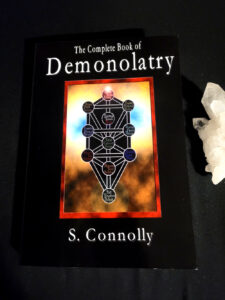 Delving into the pages of Anton LaVey’s “Satanic Bible” is like embarking on a journey through a misunderstood yet fascinating landscape of ideas. This controversial work, often shrouded in mystery, lays the foundation for the modern Satanic movement by challenging traditional notions of morality and advocating for radical individualism.
Delving into the pages of Anton LaVey’s “Satanic Bible” is like embarking on a journey through a misunderstood yet fascinating landscape of ideas. This controversial work, often shrouded in mystery, lays the foundation for the modern Satanic movement by challenging traditional notions of morality and advocating for radical individualism.
LaVey’s philosophical principles of Satanism offer a unique perspective on the nature of religious freedom, urging readers to reconsider their assumptions about good and evil. As we explore the cultural significance of Satanism, this review will illuminate how LaVey’s provocative text has influenced both pop culture and societal perceptions. So, whether you’re curious about the nuances of Satanic philosophy or the broader discussions it inspires, this exploration is sure to provide intriguing insights.
Core Themes of the Satanic Bible
Let’s dive into the heart of Anton LaVey’s controversial work. The Satanic Bible presents a unique blend of philosophy, psychology, and ritual that challenges traditional religious norms. We’ll explore its main ideas and how they’ve shaped modern Satanic thought.
Exploring Philosophical Principles of Satanism
The Satanic Bible outlines a philosophy that’s often misunderstood. At its core, LaVeyan Satanism isn’t about worshiping an evil deity. Instead, it promotes a form of atheistic self-worship.
LaVey’s principles emphasize personal responsibility and the pursuit of earthly pleasures. He argues that humans should embrace their natural instincts rather than suppress them.
 The text also introduces the concept of “vital existence,” encouraging followers to live life to the fullest. This philosophy stands in stark contrast to many traditional religions that focus on afterlife rewards.
The text also introduces the concept of “vital existence,” encouraging followers to live life to the fullest. This philosophy stands in stark contrast to many traditional religions that focus on afterlife rewards.
Individualism and Morality Unveiled
LaVey’s work presents a radical view of individualism and morality. He argues against traditional notions of good and evil, suggesting that these concepts are subjective and often used to control people.
The Satanic Bible promotes the idea that each person should be their own god, making decisions based on what’s best for them rather than adhering to societal norms.
This philosophy challenges readers to question conventional morality and create their own ethical framework. It’s a provocative stance that has sparked countless debates since the book’s publication.
Religious Freedom Discussions Sparked
The Satanic Bible has been a catalyst for discussions about religious freedom. By presenting Satanism as a legitimate belief system, LaVey forced society to grapple with the limits of religious tolerance.
Many have used the book’s teachings to challenge the privileged position of mainstream religions in public life. This has led to legal battles and debates about the separation of church and state.
The text continues to be a touchstone for those advocating for broader religious freedoms and equal treatment under the law for all belief systems.
Cultural Significance and Impact
The Satanic Bible’s influence extends far beyond its immediate readership. It has left an indelible mark on popular culture, shaped societal perceptions, and given rise to a modern Satanic movement. Let’s explore its wide-ranging impact.
Influence on Modern Satanic Movement
LaVey’s work laid the foundation for the modern Satanic movement. It provided a coherent philosophy and set of rituals that allowed Satanism to evolve from a loosely defined concept into an organized belief system.
The Church of Satan, founded by LaVey, used the book as its central text. This organization has since inspired numerous offshoots and related groups.
Today, Satanic organizations continue to use the principles outlined in the Satanic Bible as a starting point for their own philosophies and practices.
Societal Perceptions of Satanism
The Satanic Bible has significantly impacted how society views Satanism. Before its publication, Satanism was largely associated with medieval witch hunts and horror movies.
LaVey’s work presented Satanism as a rational philosophy rather than a sinister cult. This has led to a more nuanced public understanding of Satanic beliefs.
However, misconceptions persist. Many still equate Satanism with evil, largely due to its provocative imagery and rejection of traditional moral norms.
Popular Culture and Anton LaVey
Anton LaVey and his Satanic Bible have left an undeniable mark on popular culture. References to LaVey’s work can be found in music, movies, and literature.
Many artists, particularly in the metal and rock genres, have drawn inspiration from LaVeyan Satanism. This has sometimes led to controversy and moral panics about the influence of Satanic themes in media.
LaVey himself became a cultural icon, known for his distinctive appearance and provocative statements. His influence continues to be felt in various subcultures today.
Unpacking Its Enduring Relevance
Despite being published over half a century ago, the Satanic Bible continues to provoke thought and debate. Its ideas remain relevant in discussions about religion, philosophy, and individual freedom. Let’s examine why this controversial text still matters today.
Lasting Impact on Religious Studies
The Satanic Bible has become an important text in religious studies. It challenges scholars to broaden their understanding of what constitutes a religion or belief system.
Many universities now include the study of Satanism in their religious studies programs. This has led to a more comprehensive and nuanced approach to understanding diverse belief systems.
The book’s impact extends beyond academia, influencing public discourse about the nature of religion and spirituality in the modern world.
Continued Discussions in Philosophy
LaVey’s work continues to spark philosophical debates. Its emphasis on individualism and rejection of traditional morality aligns with certain schools of existentialist and nihilist thought.
 Philosophers still grapple with the questions raised by the Satanic Bible about the nature of good and evil, free will, and the role of religion in society.
Philosophers still grapple with the questions raised by the Satanic Bible about the nature of good and evil, free will, and the role of religion in society.
These ongoing discussions demonstrate the book’s enduring relevance in the field of philosophy.
The Future of Satanic Thought
As we look to the future, it’s clear that the ideas presented in the Satanic Bible will continue to evolve. New generations of thinkers are reinterpreting LaVey’s work in light of contemporary issues.
Some modern Satanic groups have moved away from LaVey’s more individualistic philosophy, focusing instead on social justice and political activism.
The ongoing relevance of Satanic thought suggests that it will continue to play a role in shaping discussions about religion, morality, and individual freedom in the years to come.
If you haven’t read the Satanic Bible yet, now is your opportunity – pick up a copy of the Satanic Bible at Amazon.com
Satanism is an ever changing social movement. This site brings you the past, present and future of Satanism today. Written with an unbiased, nonpartisan view for the education of all. Knowledge is power!




